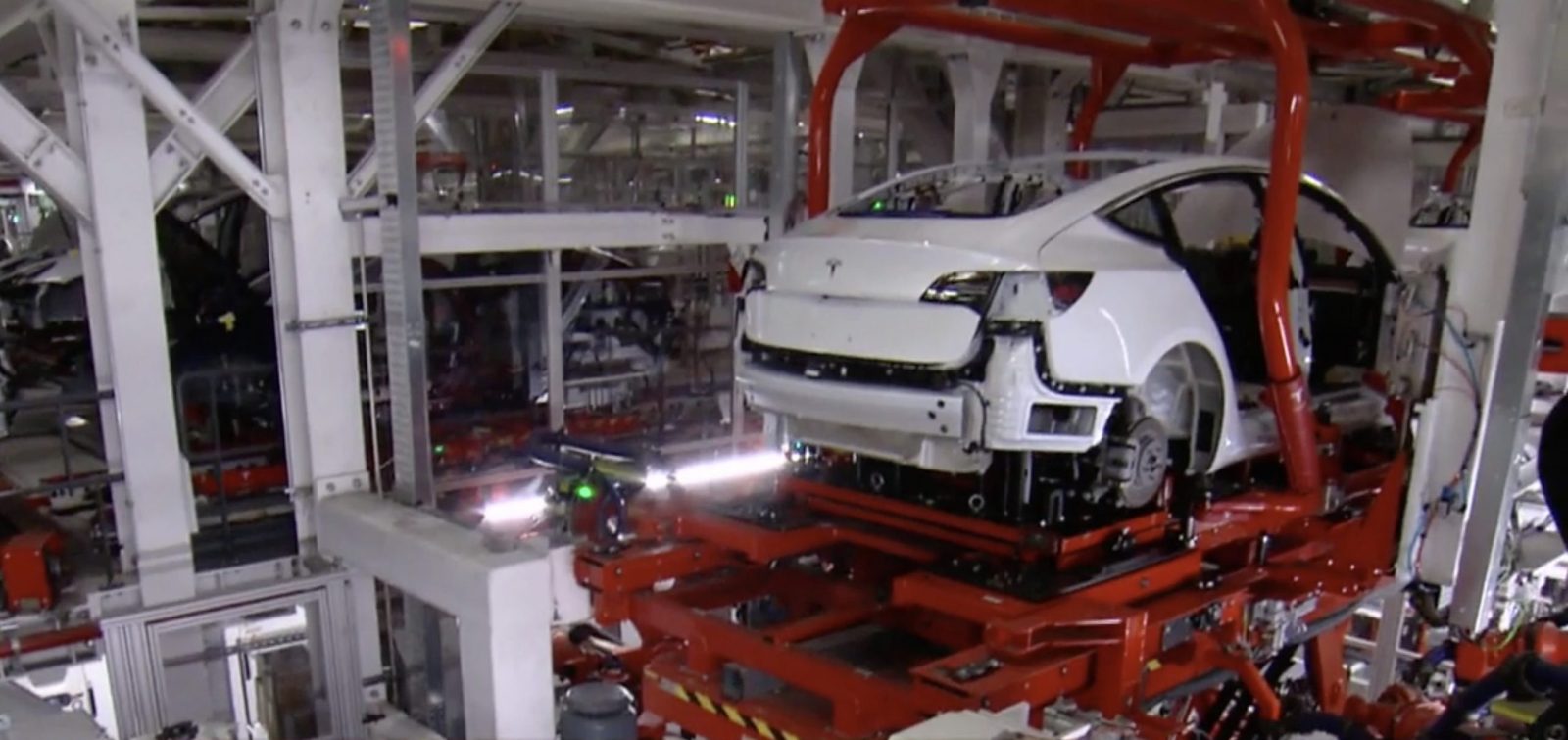According to a new report from Bloomberg, Tesla is shutting down a Model 3 production line at its factory in Fremont, California. The line will reportedly be shut down for two weeks.
According to the report, Tesla employees were informed that a Model 3 production line will be temporarily shut down at the Fremont factory until March 7: “Workers on a Model 3 production line in Fremont were told their line would be down from Feb. 22 until March 7, said the person, who asked not to be identified because the information is private. Impacted staff were told they would be paid for Feb. 22 and Feb. 23 and not paid for Feb. 28, March 1, 2 and 3. They were advised to take vacation time, if they had it.”
The employees notified were not given a reason for the temporary shutdown.
The fact that the electric vehicle industry is currently experiencing a microchip shortage is a good indication of the cause of the Fremont line shut down. With the over 10,000 parts used to complete a Tesla vehicle, the absence of one can ruin the whole process.
The industrywide chip shortage has already resulted in many vehicle production lines to temporarily shut down including GM, Ford, Nissan, Toyota, Volkswagen, Suburu, and Fiat Chrysler. Each of these automaker’s has announced that is has paused or decreased production lines because of the shortage.
Up until this point, Tesla was seemingly working around the issues, however that may no longer be the case. The arctic storms that rocked Texas last week, resulting in massive power outages in freezing temperatures forced Samsung to shut down its semiconductor plant in Austin. A shutdown that undoubtedly affected the EV giant’s chip supply.
One of the main chips inside of a Tesla vehicle is that resposible for its Full Self-Driving computer. A chip powered by Tesla’s design and produced by Samsung.
Earlier this month, the automaker said it wasn’t sure how the microchip shortage will affect them and said its 10-K filing with the SEC: “For example, a global shortage of microchips has been reported since early 2021, and the impact to us is yet unknown. The unavailability of any component or supplier could result in production delays, idle manufacturing facilities, product design changes and loss of access to important technology and tools for producing and supporting our products. Moreover, significant increases in our production, such as for Model 3 and Model Y, or product design changes by us have required and may in the future require us to procure additional components in a short amount of time.”
We will update this article as more information becomes available.

